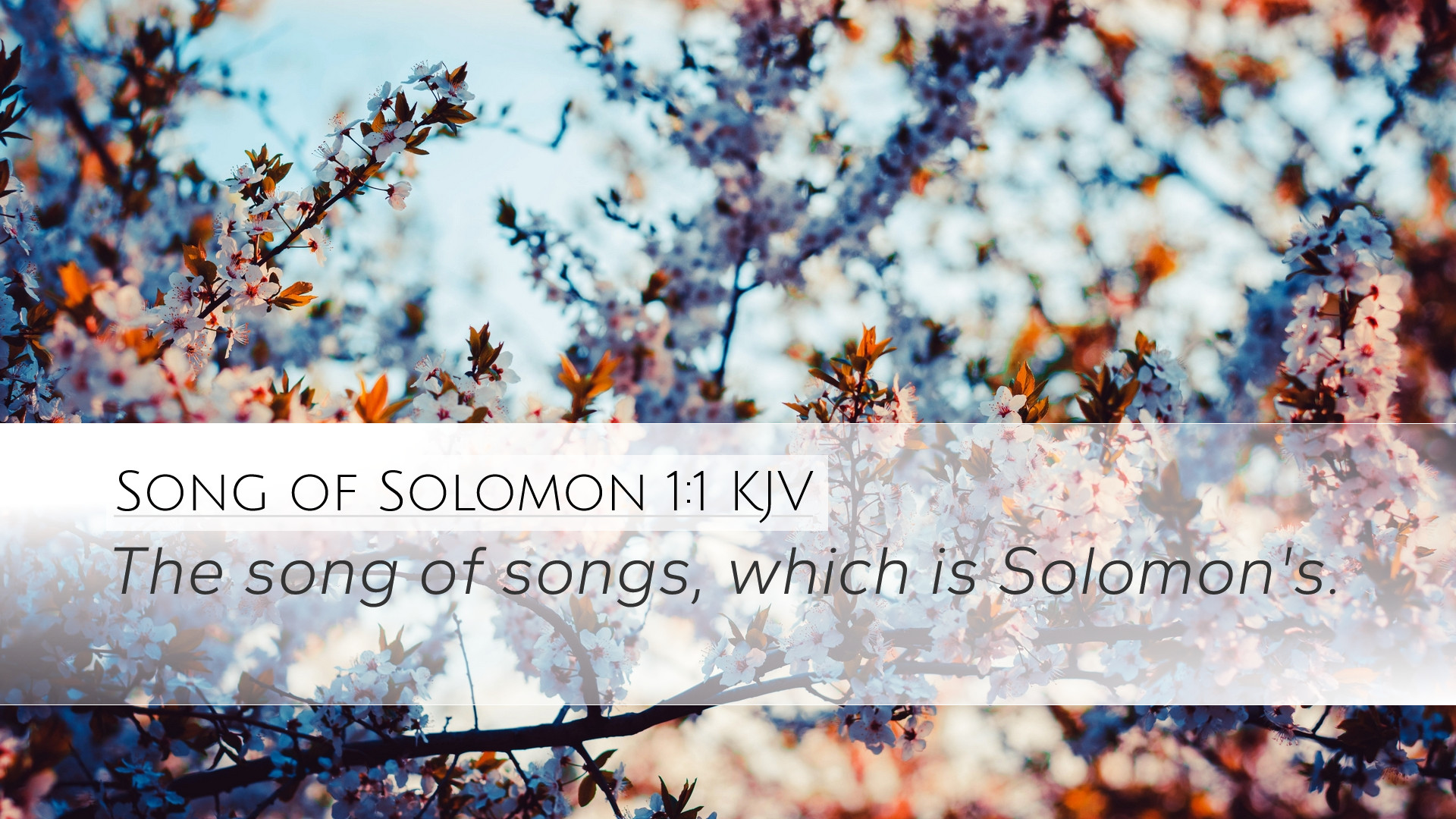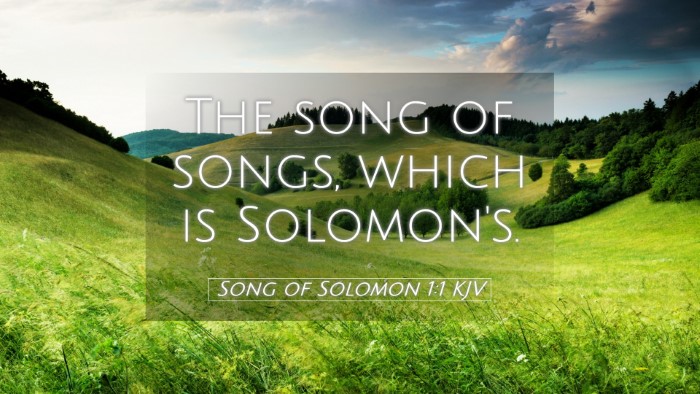Commentary on Song of Solomon 1:1
Verse Reference: Song of Solomon 1:1 - "The song of songs, which is Solomon's."
Introduction
The Song of Solomon, attributed to Solomon, is a profound piece of biblical literature that holds rich theological significance. It is often classified as a love poem, filled with expressive imagery and passionate dialogue. This brief yet powerful introduction to the Song sets the tone for the themes of love, desire, and longing that permeate the text.
Authorship and Structure
This verse establishes Solomon as the composer, affirming the traditional belief regarding its authorship. Commentators such as Matthew Henry emphasize the distinction of the Song of Songs as being unique, implying that it stands above all other songs and literary works in its beauty and depth.
Albert Barnes points out that the Hebrew phrase "Song of Songs" is akin to superlatives, indicating that this work is the ‘best of the best’. This term suggests not only literary excellence but also spiritual significance. Additionally, the mention of Solomon indicates that the themes of the Song may reflect the complexities of his own life, specifically in relation to love and desire.
Thematic Elements
The Song of Solomon explores various themes, all of which are hinted at from the very first verse. The concept of romantic and divine love interweaves throughout the text. Adam Clarke interprets the title as an indication of an exploration of divine and human love, portraying the emotional depth and sincerity found in true love, potentially serving as an allegory for God's love for His people.
- Divine Love: The love between God and His people is mirrored in human relationships, emphasizing fidelity, beauty, and passion.
- Human Love: The expressions of love between the bride and the groom portray the intimacy and affection that are foundational to marital relationships.
Literary Devices and Imagery
The language used in the Song of Solomon is rich with metaphor and simile, contributing to its artistic style. The phrase "Song of Songs" invokes a sense of delight and worship, as noted by Matthew Henry. He asserts that there is a joyous celebration of love that unfolds, characterized by eloquence and beauty.
Albert Barnes elaborates on the vivid imagery employed to illustrate the delights of love, often employing nature and physical beauty. This device serves to highlight the profound enjoyment found in love, encouraging readers to appreciate both the earthly and the heavenly aspects of romantic relationships.
Spiritual Implications
Understanding the spiritual implications of this verse requires deeper reflection on the nature of love itself. Adam Clarke suggests that the Song of Solomon serves as a reminder of the intensity with which God loves His creation and the passion that should exist in human relationships. This passionate love is not solely a human experience but is instead rooted in a divine paradigm.
Matthew Henry asserts that this text invites believers to examine their own love for God and how it reflects in their attitudes towards one another—thus challenging them to cultivate relationships characterized by mutual respect and genuine affection.
Conclusion
Song of Solomon 1:1 acts as a gateway into a much larger exploration of love, both divine and human. The reverence attributed to the title underscores its theological weight while also appealing to the emotional and relational facets of human experience. For pastors, students, theologians, and scholars, engagement with this text provides profound insights into the nature of love, the dynamics of relationships, and ultimately, the character of God.
As such, the Song of Solomon invites readers to explore the beauty of love in all its forms, challenging them to reflect on their personal and communal relationships through the lens of Scripture.


